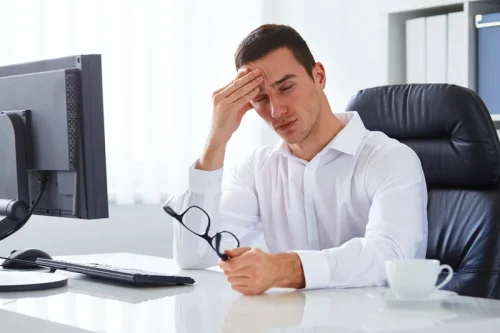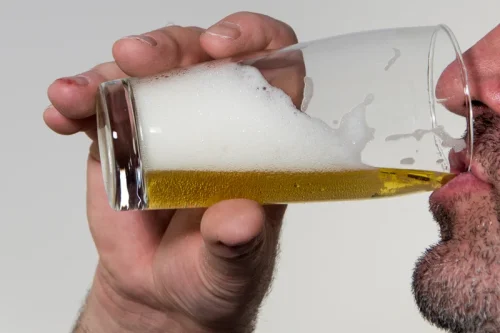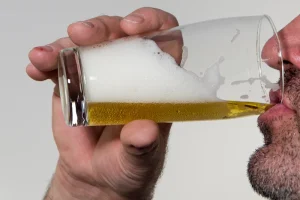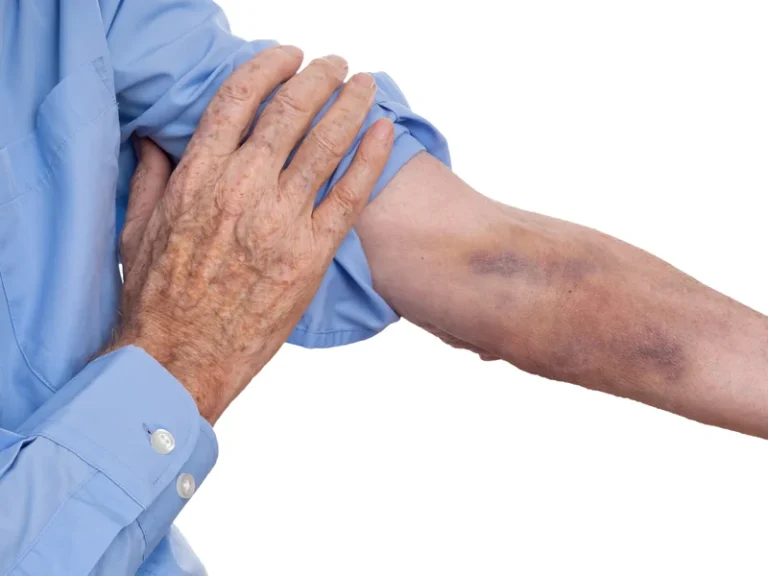
This article provides some helpful tips on how to address such inquiries effectively. The best way forward for your recovery from alcohol or substance use is to incorporate a wide variety of strategies that will help foster success. Remember to care for yourself, seek supportive relationships, and consider seeking help from a therapist. You may also experience what is commonly called sobriety fatigue, which refers to the overall exhaustion that may occur as a result of the emotional and physical stress of staying sober. So, it’s extra helpful to have a support network available to you when you need it. Post-acute withdrawal syndrome (PAWS) involves withdrawal symptoms that persist past the detox period.
How to Stay Sober
If anything, they intensify because you’re no longer drowning them out with booze. Like many folks with drinking problems, I struggle with anxiety and depression. Starting with a strong morning routine sets you up for a healthy breakfast which sets you up for being productive and getting work done, which makes you feel good and want to do more. Maintaining sobriety means understanding the relationship between the being sober around drinkers various aspects of your life and how best to optimize each component. I’ve eaten like an a-hole for years, even before I started drinking my weight in hard cider. If you’re able, it’s not a bad idea to book with your general practitioner to do a full check-up to see which (if any) nutrients you are deficient in so you can make a plan to fix it.

Science-Backed Strategies to Overcome Alcohol Cravings
That way, you can suggest fun activities that don’t involve alcohol or ensure that where you’re going has an alcohol-free drink selection. You’ll help out your friends by relieving them of planning duties, and you can ensure the destination is somewhere you feel comfortable. Medication-Assisted Treatment (MAT) combines behavioral therapy with medications to treat substance use disorders.
- Talk to your therapist, other healthcare provider, or sponsor about how to deal with your anger in ways that won’t cause you to harm yourself or others or turn to alcohol or drugs.
- In a person affected by alcoholism, the blockading effect of the medication leads to a reduction in the intensity of drinking urges.
- Joining a gym, taking fitness classes, or going to a yoga studio is another fantastic way to make friends.
- Support groups can offer a sense of community and understanding, which in turn can alleviate emotional exhaustion.
- Engaging in meaningful discussions can create memorable connections that go beyond the need for alcohol to loosen up.
- When you stop drinking and start focusing on your health, you’ll likely start to feel better once your body is properly nourished.
Develop Sober Friendships

I was sober, but instead of binge drinking on the weekends, I was binge-watching Netflix and eating pizza like a champ instead. Not exactly the Eat Pray Love dream I’d envisioned for my sober self. No woman is an island I soon realized and so decided I needed to get out of the apartment and find some fun things to do before I became all Grey Gardens (minus the Hamptons location). But with some preparation, you can go anywhere and have a great time, sober. The longer you’re abstinent, the more time your mind and body have to heal. By this time, people are often beginning to feel better and notice more energy.
- Starting with a strong morning routine sets you up for a healthy breakfast which sets you up for being productive and getting work done, which makes you feel good and want to do more.
- If anything, they intensify because you’re no longer drowning them out with booze.
- Others may have increased marital or relationship problems that are heading toward divorce or breakups.
- How to get and stay sober hinges on addressing these co-occurring disorders.
- Despite the difficulty, sober living offers many benefits, including better mental and physical health.
- Withdrawal symptoms can quickly go from a bad hangover to a serious medical situation.
- There’s no special breathing exercise that will make cravings disappear altogether.
- People at high risk of complications should enter a short-term in-patient detox program.
- One strategy that can help is carrying reminders of why you chose to abstain from alcohol.
- So with the three-fold trilogy of the holiday season upon us, as many reach for a drink, let’s also remember to reach out to each other, especially those in recovery.
Before attending a social event, remember why you chose not to drink alcohol. Establish clear intentions and goals for the gathering, such as connecting with others, having meaningful conversations, or simply enjoying the company. Setting goals can help you get the most out of the gathering and navigate tricky situations. Have an exit strategy if needed, such as checking the nearest bus stop, pre-booking transport, or calling upon a sober friend. Self-care is any activity you do deliberately to take care of your physical, mental, and emotional health.

Better Sleep, Lower Blood Pressure
- Personal growth through education or career development can significantly support long-term sobriety.
- Many people who misuse alcohol or drugs have trouble dealing with anger.
Strong cravings for alcohol can cause problems for alcoholics, as well as for people who don’t currently qualify for an alcohol use disorder diagnosis. No one can say for sure how long alcohol cravings last in any given person. Factors that influence the answer to this question include genetic predisposition for alcohol problems, the presence or absence of alcoholism, and the severity of any alcoholism symptoms. Even after receiving successful treatment, some people continue to feel an urge to drink for weeks, months, or years. The body cannot instantaneously revert to its original healthy state, and this is what causes alcohol withdrawal symptoms.
